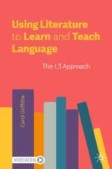Search
Search Results
-
“I Can Tell You Have ‘Special Understanding’”: Young Science Fiction Readers and Alexander Key’s The Forgotten Door
Despite the influence of Alexander Key’s novels on children’s culture of the sixties and seventies, his work as a science fiction writer has not been...
-
2103, le retour de l’Éléphant: la science-fiction utopique en dialogue avec l’Écologie
When contemporary literature seeks to warn the reader against the environmental threats that haunt the planet, it often turns to end-of-the-world...
-
Technology, Oppression, and Resistance in Speculative Young Adult Fiction
The article offers a close textual analysis of Cindy Pon’s speculative young adult (YA) novels, Want and Ruse , focused on the role of technology as...
-
Fictionalised Non-fiction Picturebooks for Preschoolers: Children’s Responses to Imaginary Constructs in Designed Reading Activities
Contemporary non-fiction picturebooks for children are often fictionalised in one way or another. Many non-fiction picturebooks for children are thus...

-
On “Science-Literature-Art” in Chinese Children’s Literature
As a modern academic neologism, “science-literature-art” is an important component of Chinese children’s literature. Looking back on the process of...
-
Gender in Cross-Cultural Encounters: Orientalism and Self-Orientalisation in Chinese-Language Young Adult Fiction
In this article, we read and analyse selected young adult novels by Chinese-German author Wei Cheng that address the dilemmas faced by young female...
-
‘Anyone Who Isn’t Against Us Is for Us’: Science Fiction Translated from English During the Kádár Era in Hungary (1956–89)
Focusing on translations from English, the chapter gives an overview of the initally ideology-driven, but later more pragmatic cultural policy of the...
-
Narrative Tradition in Fiction: A Pragma-Stylistic Approach
Chapter 3 adopts a “postclassical” approach to narratology and presents various stylistic theories and concepts employed in the literary analysis in...
-
What’s your pleasure? exploring the predictors of leisure reading for fiction and nonfiction
Leisure reading is associated with several important educational and cognitive benefits, and yet fewer and fewer young adults are reading in their...

-
Underground Fiction Translation in People’s Poland, 1976–89
This chapter examines the translation of fiction in the so-called ‘second circulation’ or samizdat press in Poland, which flourished in the years...
-
Reading children’s literature in the Anthropocene: the representation of ‘nature’ in Ursula K. Le Guin’s Earthsea fiction
This article interrogates the relationship between the human and non-human in Ursula Le Guin’s Earthsea texts. Arguing that children’s literature,...
-
Genres, Translation and the International Dissemination of Chinese Fiction
Genre can be a powerful tool for the promotion and dissemination of literary texts through translation. Genre recognition and genre’s success in a...
-
To Make You Hear, Make You Feel, Make You See: Representing Sense-Perceptions in Narrative Fiction
Sense-perception of the world around us is foundational to our making sense of that world. Sight, hearing, touch, taste and smell are not our only...
-
Healing Landscapes and Grieving Eco-Warriors: Climate Activism in Children’s Literature
Children, we are told, are becoming more anxious. But what are they anxious about? Recent studies on “climate anxiety” suggest that the current...
-
The Intersections of Religion and Science in NSTA-OSTB Biographies
This article explores depictions of religion and religious topics in children's biographies included on the National Science Teacher’s Association’s...

-
A Corpus-Based Cognitive Study of the “Rustic Literariness” of Translated Chinese Fiction
This paper is a corpus-based cognitive study of Anglo-American sinologists’ English translation of Chinese fictionChinese fiction during the last...
-
Extending the Literary Repertoire
This chapter aims to extend literary repertoires which can be orchestrated as appropriate to a particular audience, occasion or context. An extensive...
-
Why Children Need to Read About Plants at a Time of Climate Change
We begin develo** our relationship with and for Nature during childhood, and over the last 20 years research has advanced our understanding of...
-
The implementation of writing pedagogies in the Write to Read intervention in low-SES primary schools in Ireland
This study describes the initial implementation of the writing component of the Write to Read ( W2R ) literacy intervention in eight low-SES...
-
Time to read Young Adult fiction: print exposure and linguistic correlates in adolescents
Young Adult literature is a growing genre. This study examined print exposure within Adult fiction, and Children’s and Young Adult fiction in 90...
